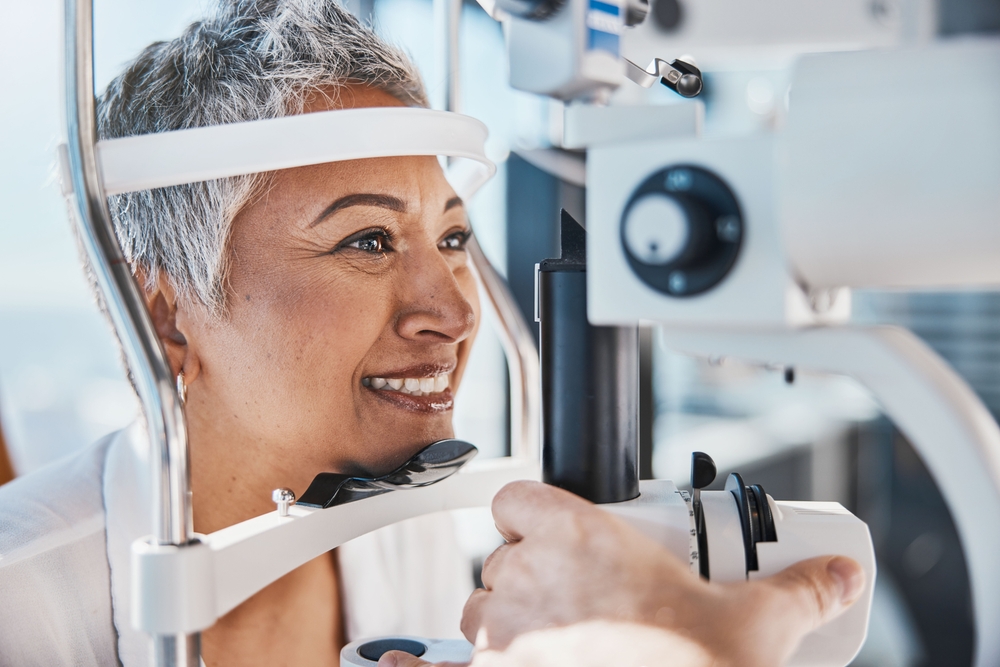
When you hear the term diabetes, you probably think about blood sugar levels, insulin, and perhaps even dietary restrictions. But did you know that diabetes can also significantly impact your vision? Diabetes and vision are intricately linked, and neglecting one can drastically affect the other.
How Diabetes Affects Your Vision
When your blood sugar levels are high, it can cause the lens of your eye to swell, which impacts your ability to see. In the short term, these changes can be corrected with proper diabetes management. However, if such conditions persist for a long time, they can lead to more severe and permanent vision problems.
Common Eye Conditions Related to Diabetes
Diabetes can also lead to a condition called diabetic retinopathy. This is a disease where the tiny blood vessels in your retina, the part of the eye that detects light and sends signals to your brain through the optic nerve, get damaged. In the early stages, you might not notice any symptoms. But as it progresses, diabetic retinopathy can cause dark spots, blurred vision, and even complete loss of vision.
Another vision issue that you might face due to diabetes is glaucoma. It occurs when there's too much pressure inside your eye, which can damage your optic nerve. People with diabetes are nearly twice as likely to develop glaucoma as those without diabetes.
Apart from diabetic retinopathy and glaucoma, diabetes can also cause cataracts. Cataracts occur when the normally clear lens of your eye becomes cloudy, leading to blurry vision. People with diabetes are more likely to develop cataracts at a younger age and have them progress faster.
Diabetic macular edema is another condition that can occur in people with diabetes. This happens when fluid accumulates in the macula, the part of your eye that provides sharp, straight-ahead vision. The buildup of fluid can cause the macula to swell and distort vision.
Lastly, individuals with diabetes can also experience nerve damage in the eyes, a condition known as cranial neuropathy. This can cause double vision and other related problems.
Understanding the Eye Exam Process for Diabetics
Given the potential risks diabetes poses to your vision, regular eye exams are crucial. Diabetic eye exams include a comprehensive eye exam that checks your vision and eye health. The optometrist will dilate your pupils using eye drops to get a better look at the back of your eyes and check for any signs of diabetes-related eye disease.
In some cases, the optometrist might also perform a fluorescein angiography. In this test, a special dye is injected into your arm, and pictures are taken as the dye passes through the blood vessels in your retina. This allows the doctor to detect any leaking blood vessels.
How Regular Eye Exams Can Prevent Vision Loss
Regular eye exams are crucial for early detection of any eye disease. Many diabetes-related eye conditions start with minor symptoms, or even no symptoms at all. Regular eye exams can help spot these conditions early, when they're easier to treat.
Additionally, regular eye exams can also help monitor the progression of any existing eye conditions. This can help your doctor adjust your treatment plan as needed to prevent further vision loss.
Conclusion
Diabetes can lead to a range of eye conditions, some of which can result in severe vision loss or even blindness. However, by understanding the link between diabetes and vision, being aware of the common eye conditions related to diabetes, and recognizing the importance of regular eye exams, you can take proactive steps to protect your vision.
If you have diabetes, make eye exams a regular part of your health care routine. Visit Enclave Vision at our office in Houston, Texas. Please call or text 281-759-3937 to book an appointment today.











